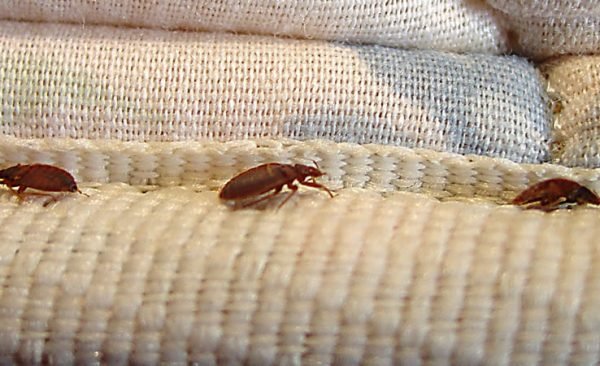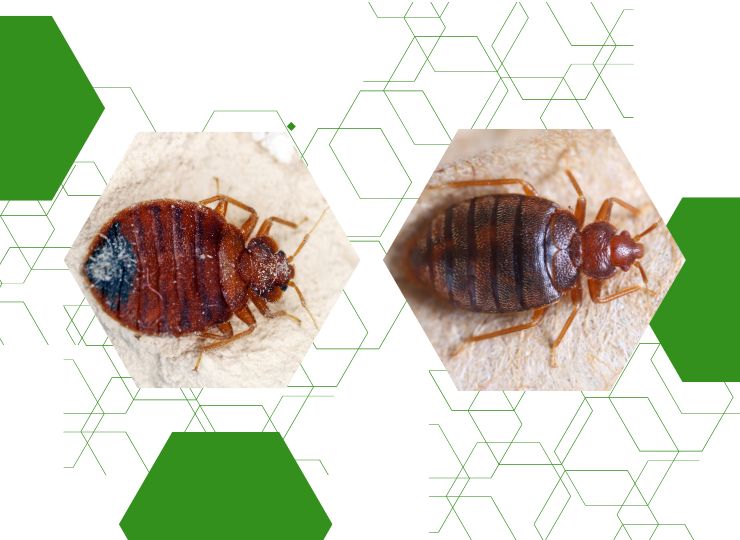Skilled Exterminator Arlington VA for Bed Bugs and Other Pests
Skilled Exterminator Arlington VA for Bed Bugs and Other Pests
Blog Article
Obtain Enlightened Regarding the Types of Insect Control Techniques and Their Benefits for Home Owners
Understanding the numerous insect control techniques readily available to homeowners is vital for efficient parasite management. Homeowners that are educated can make critical options that not only address parasite issues but additionally improve the general top quality of their living atmosphere.
Chemical Insect Control Approaches
Chemical pest control approaches are a crucial element of incorporated pest management techniques for house owners seeking efficient options to pest problems. These methods involve the application of chemical materials created to remove or deter parasites that threaten personal residential or commercial property, health and wellness, and comfort. Typical chemicals utilized include insecticides, rodenticides, herbicides, and fungicides, each tailored to target certain bugs.
The key benefit of chemical pest control is its rapid efficiency; several formulations offer prompt outcomes, decreasing pest populations substantially in a brief time. In addition, developments in chemical solutions have led to items that are extra eco-friendly and have lower toxicity levels for non-target organisms when applied properly.

Organic Pest Control Strategies
All-natural pest control techniques have actually obtained prominence as house owners look for safer and much more lasting alternatives to standard chemical strategies. Organic pest control methods use all-natural killers, parasites, or virus to handle parasite populaces effectively. This technique is not only ecologically pleasant yet additionally minimizes the risk of damage to non-target types, consisting of valuable insects and wildlife.
One of the most common biological control methods includes introducing all-natural killers right into the atmosphere. As an example, ladybugs can be made use of to regulate aphid populaces, while nematodes target soil-dwelling bugs like grubs. In addition, parasitoids-- microorganisms that reside on or within a host-- can be utilized to manage particular insect types by laying eggs inside them, inevitably causing their death.
One more method is using biopesticides, which are stemmed from all-natural products such as plants, germs, or minerals (bed bug exterminator). These products can efficiently target pests while posturing marginal danger to pet dogs and human beings. Generally, biological parasite control methods offer home owners with a reliable ways of pest monitoring that straightens with eco-friendly concepts, advertising a healthier living environment while lowering reliance on artificial chemicals
Mechanical Bug Control Techniques
Mechanical parasite control methods encompass a selection of techniques that literally avoid or eliminate bugs without the use of chemicals. These methods are particularly valuable for house owners seeking eco friendly choices while ensuring the security of their space.
One typical approach is the use of obstacles, such as traps, internet, and displays, which prevent bugs from getting in homes or specific why not try this out locations. Mounting window displays can effectively maintain pests out, while making use of physical obstacles around yards can prevent larger insects like deer or bunnies. In addition, mechanical traps developed for rodents can catch and eliminate these parasites without the demand for harmful compounds.
One more efficient approach entails the use of vacuums and mops to eliminate bugs straight from surface areas. Regular cleaning and maintenance can considerably minimize bug populaces by removing food resources and concealing areas. Utilizing devices like ultrasonic insect repellents can deter various pests through noise waves that are unpleasant to them but faint to human beings.
Cultural Insect Control Practices
Cultural parasite control techniques concentrate on changing the atmosphere and administration techniques to develop problems that are less conducive to pest problems. These methods are essential in maintaining a balanced community and decreasing the dependence on chemical treatments. By altering agricultural methods, property owners can effectively hinder bugs while promoting plant wellness.
One usual technique includes plant rotation, which interferes with the life cycles of pests by altering the kinds of plants expanded in a particular location (bed bug exterminator). This not only minimizes pest populaces but additionally improves dirt health. In addition, intercropping-- planting diverse plants in proximity-- can puzzle pests and minimize their ability to find their recommended host plants
Water administration is an additional vital facet of social methods. Correct irrigation strategies can protect against standing water, which acts as a breeding ground for mosquitoes and various other insects. Preserving cleanliness in and around the home, such as frequently getting rid of debris and food waste, can considerably minimize parasite attraction.
Incorporating these cultural methods right into a thorough insect administration method permits home owners to create an environment that naturally discourages bugs, consequently boosting the performance of various other control approaches while advertising lasting horticulture and landscape design.

Integrated Pest Management Approaches
Integrated Parasite Monitoring (IPM) represents a holistic strategy that incorporates different techniques to effectively take care of insect populations while decreasing ecological impact. This methodology integrates organic, cultural, physical, and chemical practices to attain sustainable parasite control. By examining pest populations and their all-natural opponents, IPM highlights monitoring organic termite control and recognizing insects prior to carrying out control measures.
Among the core principles of IPM is making use of thresholds, which develop the level of parasite activity that warrants intervention. This ensures that treatments are used only when essential, decreasing the dependence on chemical pesticides. Biological control techniques, such as introducing natural killers or parasites, operate in combination with cultural techniques like crop rotation and environment manipulation to interrupt pest life process.
Additionally, IPM urges making use of least-toxic chemical alternatives when intervention is needed, prioritizing products that present minimal risk to non-target microorganisms and the setting. For property owners, taking company website on IPM comes close to not just boosts the efficacy of parasite management however additionally promotes a healthier living atmosphere, cultivating biodiversity and reducing chemical exposure. Eventually, IPM encourages homeowners to make educated choices that stabilize parasite control with ecological responsibility.
Verdict
In conclusion, recognizing the different insect control approaches encourages property owners to make informed decisions relating to pest monitoring. Each approach-- chemical, biological, mechanical, social, and integrated bug monitoring-- provides distinct advantages that provide to various requirements and preferences.
Recognizing the different parasite control techniques available to house owners is important for reliable pest administration.Chemical pest control techniques are a critical element of integrated parasite management methods for homeowners seeking reliable solutions to pest invasions. Generally, organic pest control methods give homeowners with an effective ways of pest management that lines up with eco-friendly concepts, advertising a healthier living environment while minimizing dependence on artificial chemicals.
Social pest control practices focus on modifying the atmosphere and administration methods to develop problems that are much less helpful to pest problems.In verdict, understanding the various pest control methods encourages property owners to make informed decisions relating to pest monitoring.
Report this page